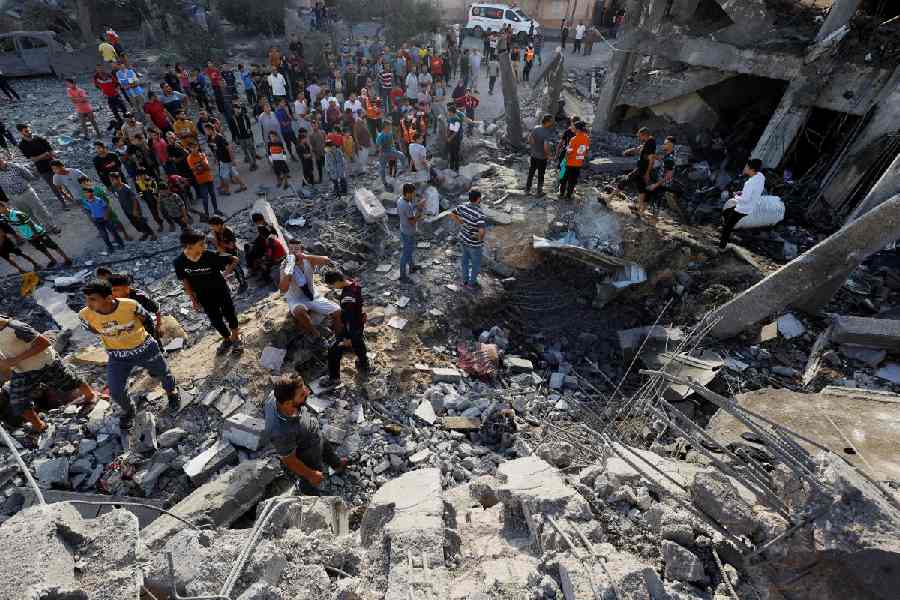Iran’s foreign minister warned on Monday that a regional network of militias known in parts of the Middle East as the “axis of resistance” would open “multiple fronts” against Israel if its attacks continued to kill civilians in Gaza.
“Time is running out very fast,” the official, Hossein Amirabdollahian, said during a live televised interview with Iranian state television Monday night. “If the war crimes against the Palestinians are not immediately stopped, other multiple fronts will open and this is inevitable.”
Amirabdollahian spoke after returning to Tehran from a tour of capitals aligned or close to Iran. He met the top political official of Hamas, Ismail Haniyeh, in Doha, Qatar; the leader of Hezbollah, Hassan Nasrallah, in Beirut; and President Bashar Assad of Syria in Damascus.
In the interview, he said that in those meetings, the leaders of what is regionally called “the resistance” told him that “their hands are on the trigger” and said that “preemptive action” was possible “in the coming few hours” because those leaders would “naturally not allow the Zionist regime to do whatever it wants in Gaza” and then turn its attention to them.
And he added that any suggestion that Hezbollah would not enter the war because of Lebanon’s financial problems was false.
Since Hamas’ Oct. 7 terrorist attack on Israel and the retaliatory bombardments of Gaza, officials from the United States, Europe and the United Nations have warned about the risk of a spillover conflict engulfing the Middle East.
Israel and Hezbollah have been exchanging fire and engaging in limited attacks and counterattacks for the past week, and Israel’s northern border with Lebanon is being closely monitored as the first potential flashpoint where the war could spread. The U.S. and Israel have been analyzing Hezbollah’s activity to determine whether it is planning to launch a full scale offensive against Israel, and officials say they believe the recent deployment of two American warships to the region will act as a deterrent.
The U.S. has sought to head off any expansion of the war by sending messages through diplomatic intermediaries in Qatar, Oman and China to warn Iran against entering the conflict and to stress that Washington is not seeking a war with Iran, according to American and Iranian officials.
In the interview, Amirabdollahian confirmed receiving the messages from Washington and said that Ireland’s ambassador in Tehran was among the diplomatic liaisons. He said Iran’s response was that the U.S. could not call on others in the region to exercise restraint while Washington stood firmly behind Israel’s military offensive in Gaza, and while an Israeli blockade preventing humanitarian aid, including food, water and medicine, endured.
“The time has completely run out for these kinds of messages from America,” Amirabdollahian said. “I would like to warn that, instead of sending us deceitful messages, stop the war crimes against women and children before it’s too late.”
Iran’s ties to Hamas are under scrutiny because it remains the only state that has provided the terrorist group with military support. Iranian officials have publicly denied being involved or ordering the attack but have praised Hamas.
Amirabdollahian said that Iran did not give orders to the leaders of the “resistance axis” and that they are autonomous in their decision making. Asked by the state television news anchor if Iran would enter the war, he said: “Anything is possible. I want to reiterate again that no side can remain indifferent to these crimes continuing.”
The New York Times News Service











